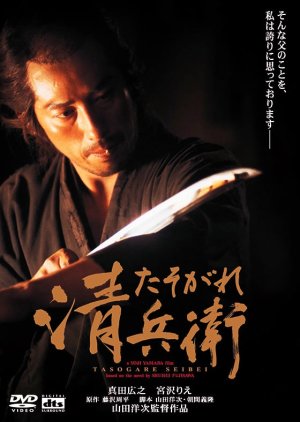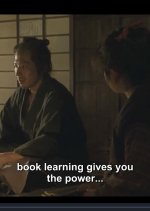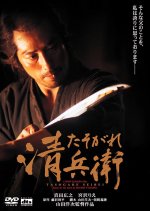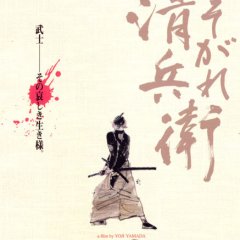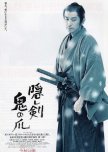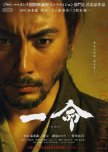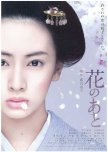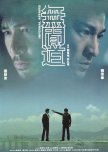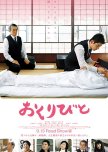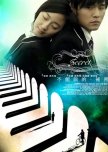At the start of the film, the main character, Iguchi Seibei, becomes a widower when his wife succumbs to tuberculosis. His wife receives a grand funeral, more than what a low-ranking samurai such as Seibei could afford. Seibei works in the grain warehouse, accounting for stores inventory for the samurai clan. His samurai colleagues mock him behind his back with the nickname Tasogare (Twilight). When evening approaches, Seibei rushes home to look after his senile elderly mother and two young daughters, Kayano and Ito, instead of bonding with his supervisor and other samurai colleagues over customary nights of dinner, and geisha entertainment, and sake drinking. Even though he is a samurai, Seibei neglects his appearance, failing to bathe and being shabbily dressed. The well-being of his young daughters and medicine for his mother takes priority over new clothes or the monthly bath fee. However, things change when Seibei's childhood friend Tomoe (sister of Iinuma Michinojo, one of his better, kinder samurai friends) returns to town. Edit Translation
- English
- 中文(台灣)
- magyar / magyar nyelv
- dansk
- Native Title: たそがれ清兵衛
- Also Known As: Tasogare Seibei
- Screenwriter & Director: Yamada Yoji
- Genres: Historical, Romance, Drama
Cast & Credits
- Miyazawa Rie Main Role
- Sanada Hiroyuki Main Role
- Kobayashi NenjiKusaka ChoubeiSupport Role
- Osugi RenKouda ToyotarouSupport Role
- Fukikoshi MitsuruIinuma MichinojoSupport Role
- Fukaura KanakoIinuma YaeSupport Role
Reviews

Two hours did not feel like two hours. It's slow-paced but it's not the kind that drags on into unnecessary details. It's also not the metaphorical tale that other try to be, the story is straightforward, simple yet there's also something so enthralling about it. You'd want to see Seibi's character and how he'd go about his life as a petty samurai with two young daughters and a senile mother to look after. He's portrayed in a pitiful way but not in the way that makes you feel sad for him but at the same time, makes you root for him. He's neither depicted as likable or unlikable, just the way he is. Raw and real.
I definitely loved the aesthetics of this film. It's set in mid-19th century Japan and everything about it feels like that -- even the Japanese that they use. I guess it's the dialect (?) but it does give off a very historical feel even the way the characters act down to the little details of the clothes, hair and such. But the colors aren't crisp that it evokes a nostalgic and dramatic feel that echoes the overall tone of the film. It's a tale of mundane life that's amplified but still concise.
Hiroki Koreeda cites his style as more of Yamada to which this having my first Yamada film, I can finally see now. The attention to details, the simplicity and the subtle dramatic tension makes the film all more beautiful. Seibei and Tomoe's formal courtship is filled with dramatic tension -- just perfect for its time. While the lone "action scene" is stretched to the last 30 minutes or so, Yamada tries to keep us at the edge of our seats as the two characters (hero and villain) talk things out before launching into battle mode, only to force us to take deep breathes as he suddenly lunges at us.
All in all, The Twilight Samurai is ultimately about family. And while a mundane tale, Seibei and the narrator (the daughter's) words make it a poetic, almost poignant one.

